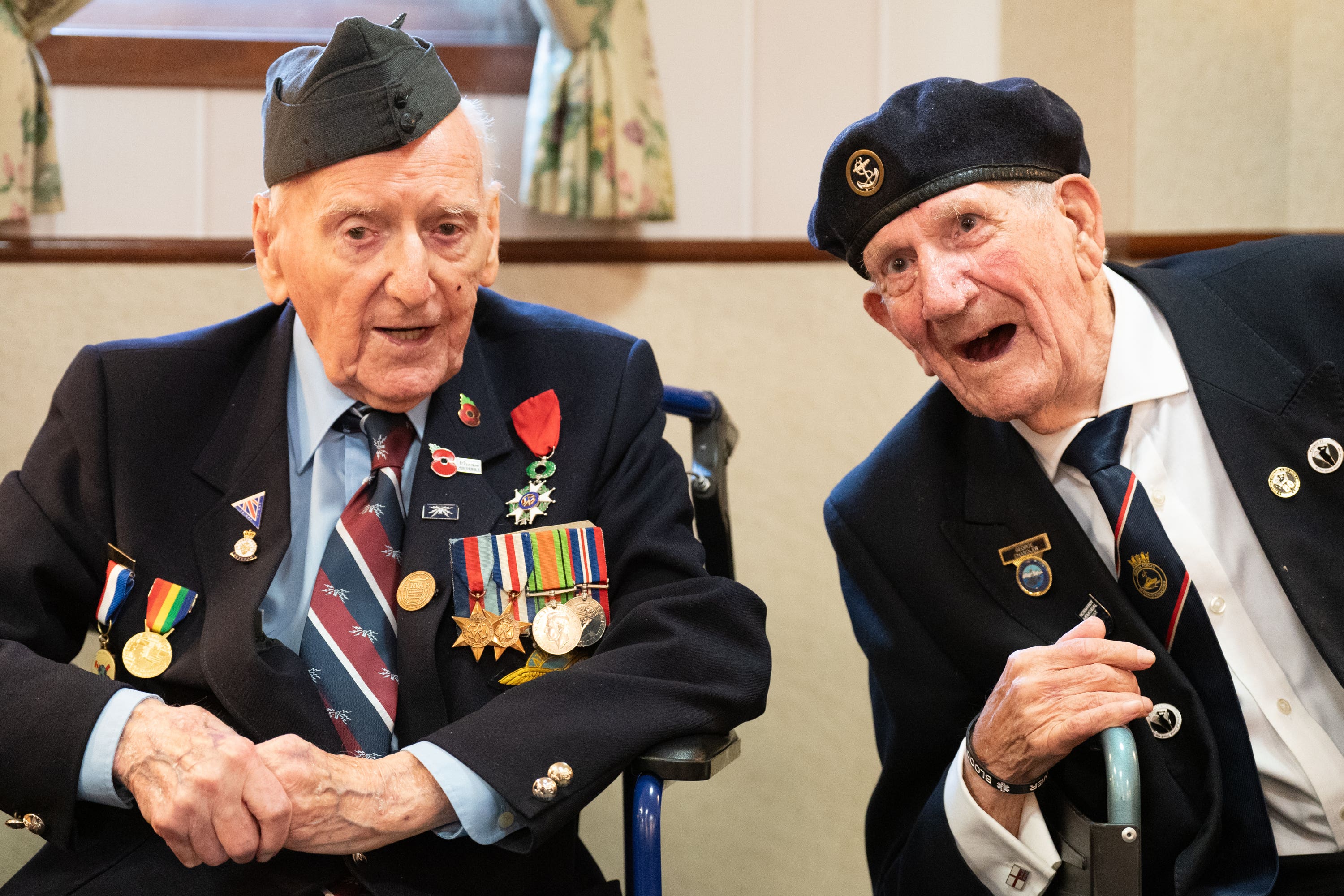D-Day veteran urges children ‘not to make same mistakes we made in going to war’
The Prime Minister’s wife Akshata Murty welcomed a group of around 30 pupils to Downing Street on Tuesday as part of a memorial event.

A D-Day veteran has warned schoolchildren not to “make the same mistakes” his generation made regarding going to war, at a Downing Street event commemorating the Normandy landings.
Around 30 pupils aged 10 and 11 from Hayfield Cross school in Kettering, Northampton, took part in the event in London on Tuesday.
The Prime Minister’s wife, Akshata Murty, greeted the children outside Number 10 and invited a girl and a boy to knock on the door before they all went inside.
The children smiled and cheered when Ms Murty asked whether they were excited to be there.
After a tour of Number 10 and a lesson on the role of Winston Churchill and his staff during the Second World War, pupils boarded a 1940s-style red double-decker bus and were taken to HMS Belfast, a naval ship that is now permanently moored on the Thames in central London as part of the Imperial War Museum.
On D-Day, the ship fired some of the first shots of the naval bombardment in Normandy and its crew helped treat the wounded.
So let me ask you sincerely to make sure that you, all of you, don’t make the same mistakes that we made in going to war because there’s nothing grand or what have you about war
Speaking at a question-and-answer session, veteran George Chandler, 99, asked the children to ensure their generation learned from the horrors of the Second World War.
Mr Chandler, who lives in Brighton, East Sussex, and was deployed to Omaha Beach during the Normandy landings when he was 19-years-old, told the pupils: “Let me tell you something about war, nobody ever wins a war – one side gives in and that doesn’t mean to say you’ve won a war if the other side has decided they’ve had enough.
“So let me ask you sincerely to make sure that you, all of you, don’t make the same mistakes that we made in going to war because there’s nothing grand or what have you about war.”
Bernard Morgan, 100, from Crewe, a former RAF sergeant who was deployed to Gold Beach in France, saluted as the children applauded him at the event where he recalled seeing dead bodies for the first time when he arrived on the beaches in Normandy.
He said: “The sad thing I shall always remember is seeing all the dead bodies on the beaches, and they were mainly all allied soldiers who had arrived in the morning in the small landing craft, but unfortunately they’d been dropped off in deep water.
“They jumped out of the landing craft and with the equipment and weapons they were carrying, the poor soldiers dropped down in the water and drowned and that was a very sad sight to see.”
Paying tribute to those who had died, Mr Morgan said: “The people I’d like us all to remember are the sailors, soldiers, airmen, airwomen and civilians who gave their lives for the freedom that we have today – those people should never be forgotten.”
Defence Secretary Grant Shapps and Education Secretary Gillian Keegan also took part in the session, where Ms Keegan compared the hardship the veterans had experienced to the ongoing conflict in Ukraine.
She told the schoolchildren: “You can always learn from history, and I think we also must never forget the people who made a sacrifice.
“But you can relate it to today as well, some of you will have maybe young children from Ukraine in your school, maybe you will find some people in your community who have come over from Ukraine because, of course, they have been invaded by Russia.
“So similar to what was happening, not on the same scale in terms of number of countries, but for children in Ukraine and for people in Ukraine, they’re going through this right now.”
Bookmark popover
Removed from bookmarks